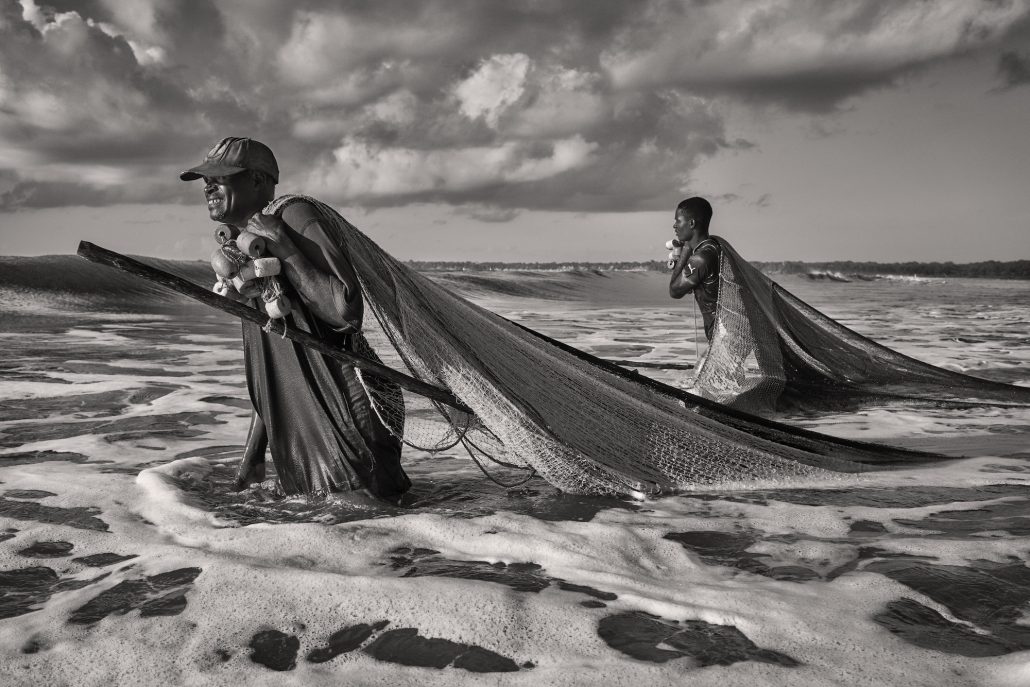The Swahili Coast
This post is also available in:
 French
French
East African coast, 2017
Six degrees South is the latitude of the Zanzibar archipelago and the exact geographical centre of the Swahili coast. Emerging in the tenth century through trading with the Arab and Persian worlds, India and China, the Swahili Coast is as much a linguistic and cultural reality as a physical one. The ancient seafaring traditions of this region, along with the strong links between its inhabitants and the sea, are inseparable from its cultural and religious traditions, and especially Islam.
The documentary presented here looks at the growingly uncertain future of these communities along the East African coast. A dramatic drop in the stocks of fish has been observed, as well as important changes to the environment due to climate change. It seems highly likely that these men and women will be forced to leave their coastline homes over the coming decades to populate the shanty towns around the big cities, leading to the abandon of their thousand-year-old traditions.
I have undertaken this project as a veritable record for posterity in the light of the threats faced by these populations and their collective savoir-faire. Travelling around the region for two years, I wanted to immortalise this well-defined but disappearing culture bridging different civilisations. This documentary contains 170 images of the highest quality.
SEIS GRADOS SUR
Gilles Nicolet
La costa swahili
Zanzíbar, 2017
Seis grados sur es la latitud del archipiélago de Zanzíbar y el centro geográfico exacto de la costa swahili. Su origen remonta al siglo X con los intercambios comerciales entre el mundo árabe y persa, China e India. La costa swahili define ella sola una realidad lingüística, cultural y física, las antiguas tradiciones marinas de la región, como así también los fuertes lazos entre sus habitantes y el mar, indisociables de sus tradiciones culturales y religiosas, y del islam en particular.
Este trabajo fotográfico es un enfoque sobre el futuro de estas comunidades costeras de África Oriental, cuyo porvenir corre peligro. De hecho, a causa de los métodos masivos de pesca industrial se constata en la región una disminución dramática de la cantidad de peces, así como también las modificaciones medioambientales a causa del cambio climático. Por ende, es muy probable que en las próximas décadas estos hombres y mujeres se verán obligados a abandonar sus riberas para emigrar a las grandes ciudades e incrementar así los tugurios y los precarios asentamientos en sus periferias, con la inevitable desaparición de todas sus tradiciones milenarias.
Las amenazas que pesan sobre estas poblaciones y sus costumbres me hacen considerar este reportaje como un verdadero trabajo de memoria. Recorriendo la región durante dos años para realizar este proyecto, es esta cultura fundamentalmente bien definida, pero en vías de desaparición, que yo deseaba ilustrar.



